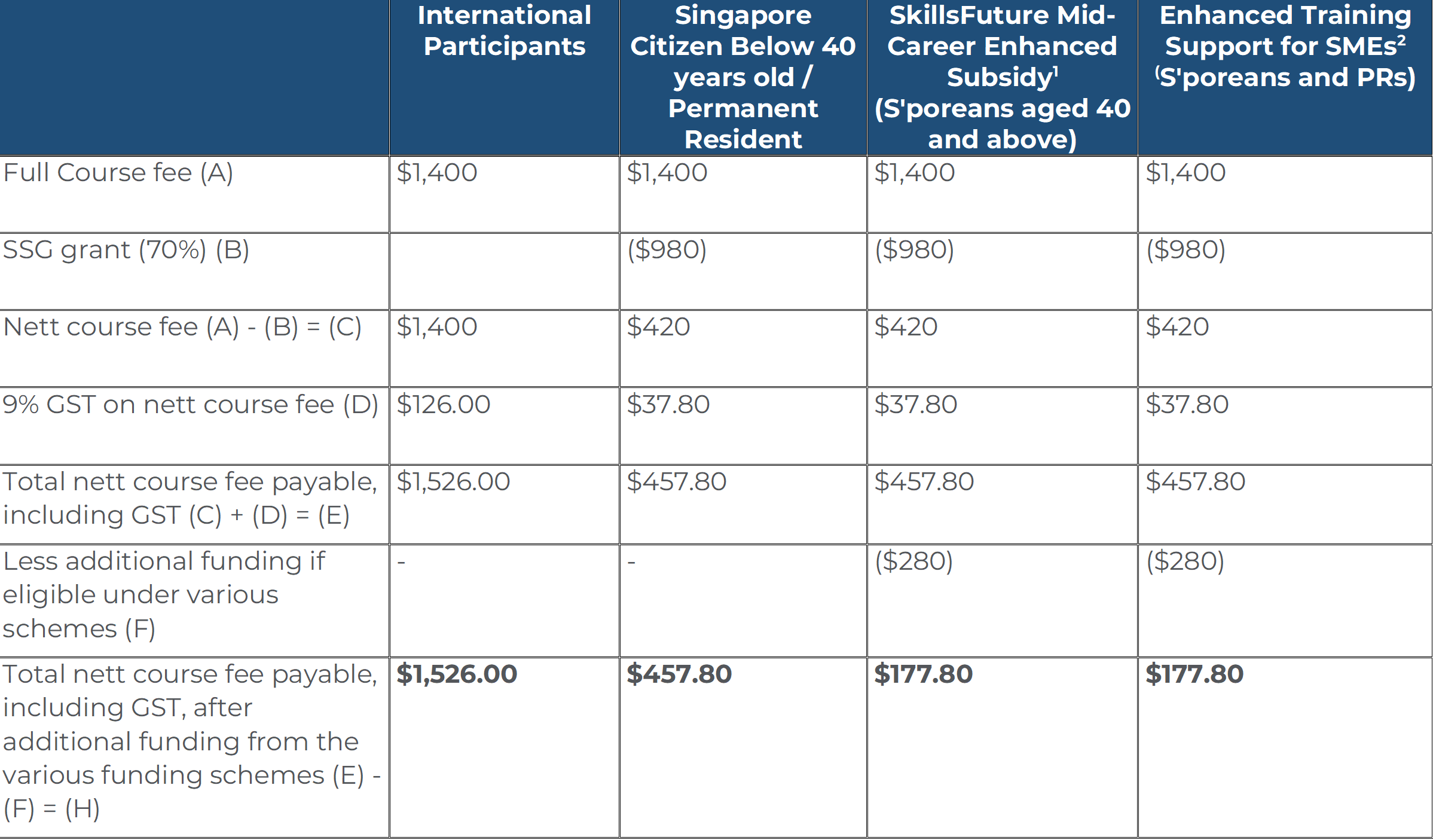Level: Basic
Date: 10 and 11 October 2024
Mode of delivery: Virtual sessions conducted via Zoom
This course is for staff who need to conduct and/or supervise internal investigation, including financial-related activities, and organisational processes, such as disciplinary inquiries, audits and compliance reviews, internal fraud investigation and other related activities. The course will equip participants with basic knowledge in the conduct of investigations. It will introduce participants to the principles and processes of investigation work, the planning required to achieve results, the dos and don’ts in investigative interview, the methods in collecting and analysing evidence and preparation of investigation report. It will also show the participants how to formulate recommendations to management on the course of action. Staff with investigation skills can help their organisation find out the truth of a matter, identify the culprit and offending behaviour and recommend punitive, remedial and preventive measures that can be taken.
When staff deploy the investigation processes, they help the organisation ensure the integrity of their systems and processes and the desired conduct of their staff. This course is relevant for the financial services industry and the professional services industry. It will deepen the essential skill set of finance and professional services staff. The building of investigation capabilities in these industries contribute to enhancing productivity and organisation transformation through better staff capability in analysing issues, identifying root causes and working out rectification, remedial, preventive and improvement measures. Staff imbued with investigative skills can be more innovative, with greater enquiring mindset, willingness to dissect problems, propose courses of action and new ways of bringing the industry forward.
Senior managers, managers, supervisors and executives in HR, finance, procurement, audit, internal investigation and other staff with responsibilities for investigation in the organisation.
- Objectives and principles of investigation
- Investigation processes
- Investigation planning – stages and activities
- Investigative interview
- Evidence - types of evidence, collection and analysis
- Review of investigation findings
- Preparing investigation report
- Formulating recommendations on course of action to be taken
- Case studies of investigation cases
- Pitfalls and best practices in investigation
A. Knowledge and Understanding (Theory Component)
At the end of this course, participants should be able to:
- Explain the objective and principles of investigation
- Discuss the stages and activities in the investigation process
- Identify the evidence to be collected in an investigation
B. Key Skills (Practical Component)
At the end of this course, participants should be able to:
- Apply the investigation process in a case under investigation
- Formulate the investigation plan
- Examine the investigation findings and prepare report
| Time | Agenda |
|---|
| Day 1 |
| 09:00 - 09:15 | Course overview |
| 09:15 - 10:30 | Investigation objectives, principles and processes |
| 10:30 - 10:45 | Break |
| 10:45 - 12:00 | Investigation planning |
| 12:00 - 13:00 | Lunch |
| 13:00 - 15:30 | Investigative interview |
| 15:30 - 15:45 | Break |
| 15:45 - 17:00 | Evidence collection and analysis (I) |
| 17:00 - 17:30 | Assessment |
| Day 2 |
| 09:00 - 09:15 | Course overview |
| 09:15 - 10:30 | Evidence collection and analysis (II) |
| 10:30 - 10:45 | Break |
| 10:45 - 12:00 | Investigation Report |
| 12:00 - 13:00 | Lunch |
| 13:00 - 15:30 | Formulation of recommendations |
| 15:30 - 15:45 | Break |
| 15:45 - 17:30 | Case study and wrap up |
- Attendees required to use laptop/computer with access to Zoom and internet
 Associate Professor Soh Kee Hean is Head of the Criminal Investigation Minor in SUSS. He retired from the Police in 2019, after more than 30 years of service in the Police and the Home Team. Amongst many areas of work, he had worked as a criminal investigator and managed investigation work in the departments – in Geylang Police Division, in Criminal Investigation Department (CID) and Corrupt Practices Investigation Bureau (CPIB) as well as in the statutory board Council for Estate Agents (CEA). He had also worked in Police Technology, where he planned and deployed technology systems and services to support investigations, operations and other functions of the Police. In his last appointment before retirement, he was in charge of the forensic and criminal investigation training for officers of the Police Force and the Home Team in the Home Team School of Criminal Investigation.
Associate Professor Soh Kee Hean is Head of the Criminal Investigation Minor in SUSS. He retired from the Police in 2019, after more than 30 years of service in the Police and the Home Team. Amongst many areas of work, he had worked as a criminal investigator and managed investigation work in the departments – in Geylang Police Division, in Criminal Investigation Department (CID) and Corrupt Practices Investigation Bureau (CPIB) as well as in the statutory board Council for Estate Agents (CEA). He had also worked in Police Technology, where he planned and deployed technology systems and services to support investigations, operations and other functions of the Police. In his last appointment before retirement, he was in charge of the forensic and criminal investigation training for officers of the Police Force and the Home Team in the Home Team School of Criminal Investigation.
Please submit the following documents to cet@suss.edu.sg:
- Coloured copy (back and front) of NRIC for Singaporeans and PRs, or "Employment"/"S" Pass for foreign applicant
- Application form

1 Mid-Career Enhanced Subsidy: Singaporeans aged 40 and above may enjoy subsidies up to 90% of the course fees.
2 Enhanced Training Support for SMEs: SME-sponsored employees (Singaporean Citizens and PRs) aged 21 and above may enjoy subsidies up to 90% of the course fees.
3 Additional subsidy for Singaporeans: With effect from 1 January 2023, the GST rate will be revised from 7% to 8%. There will be no fee increase for Singaporeans taking SSG subsidized course(s) from 1 January to 31 December 2023.
- Participants are required to achieve at least 75% attendance and pass any prescribed examinations/assessments or submit any course/project work (if any) under the course requirement.
- Participants are required to complete all surveys and feedbacks related to the course.
- The course fees are reviewed annually and may be revised. The University reserves the right to adjust the course fees without prior notice.
- Singapore University of Social Sciences reserves the right to amend and/or revise the above schedule without prior notice
For clarification, please contact the SUSS Academy via the following:
Telephone: +65 6248 0263
Email:
CET@suss.edu.sg